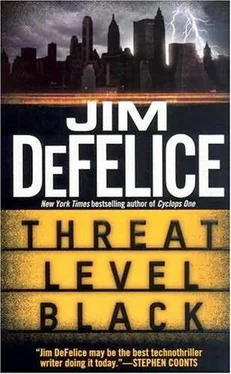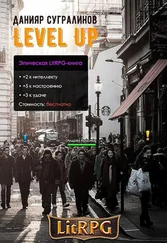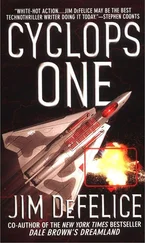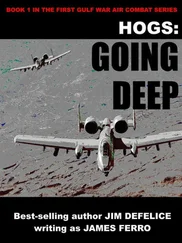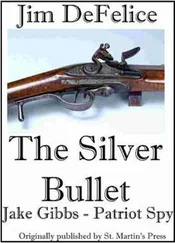The NCOs were especially bitter, noted the major, as they’d been complaining for months about the systems. Tyler knew that while the sergeants generally ran the show, the upper-level people rarely paid enough attention to their advice. As a captain, he’d worked hard to be different; he knew a lot of other officers-this major undoubtedly was one-did, too, but the split between enlisted and officer was somehow ingrained in the culture.
Somers seemed amused by the failures of technology. He sat back on his metal folding chair, finger against his lip as he listened.
“The key point here,” said the historian as the major’s tirade finally ran out of steam, “is that your people found suitable work-arounds at the crisis point. Which to my mind illustrates their resourcefulness and training. It requires a supportive command structure as well. So, despite the technology screwups, once more the human factor came to the fore.”
“Sure. Of course,” said the major.
“The NCOs and the officers did well despite having one hand tied behind their backs with the technology screwups.”
“And the men.”
“Absolutely,” said the officer.
Had the praise come from Tyler, it would have probably been dismissed as ass-kissing, or worse. But Somers made it sound more important and somehow more genuine. He was right, of course: The fact of the matter was that the Army had done well not because of its cutting-edge doodads-they’d screwed up-but because of its training and a command structure and culture that emphasized personal initiative in combat.
As they turned to the matter at hand, the major proved insightful and well connected; he picked up a phone and arranged a helicopter for a tour of several units to the east in the countryside.
“Did you butter him up on purpose?” Tyler asked Somers as they walked toward the chopper later.
“Butter him up?” Somers made a face. “Sometimes it’s important to state the obvious. We lose track of it. This was the sort of advance that will be studied for a long time. Partly it succeeded because it was made against a demoralized, ill-equipped army that had no reason to fight. But such armies have surprised generals for centuries. Napoléon, Guderian, Burgoyne. Studying failure is instructive,” added the historian as he pulled himself up into the Blackhawk. “The technology has to be straightened out. But we can’t let the shortcomings obscure the successes.”
Even from the helicopter, the poverty of the North Koreans was clear. Roads were rutted and empty, houses in the countryside were little more than shacks and often in disrepair. The country’s abject state was almost a caricature. How, Tyler wondered, could a ruler so badly fail his people?
The translator, a South Korean on loan to the group, was somewhat prejudiced against the peasants they spoke to after putting down at a forward outpost. He shook his head as he explained that the people had no idea what they would eat when winter came.
“Ask if they have guns,” said Tyler.
The translator practically rolled his eyes, but he asked. There had been rumors that the government had handed out weapons shortly before its fall, but these seemed false, at least here.
“We do not need guns, we need rice,” said one old man when they asked.
They made four stops, spending much of the day talking to anyone they could find: American officers, sergeants, privates, and any North Korean brave enough to come near.
“They think of Americans as devils and look for your tails,” said the translator at one point. He didn’t seem to be joking.
“So?” asked Somers as they trudged toward their temporary headquarters at the end of the day. “What have we learned?”
Tyler smiled at the academic’s pedantic style but played along. “That North Korea is a hellhole and that we have to get these people food fast.”
“And?”
“And what?”
“Can they mount a guerrilla campaign?”
“Some of the units are still intact. There are still weapons. But the population won’t support it.”
“I agree,” said Somers. “What’s really interesting, though, is the animosity between North and South,” Somers continued. “You saw our translator, and the people’s reactions to him. They thought he was arrogant.”
“Sure,” said Tyler.
“You don’t think that’s important?”
“Do you?” said Tyler.
“The friction is important,” explained Somers. “I know you’re here basically to see what the potential for resistance is from a military point of view, but the underlying realities are also important. Back home, people think that North and South want to be reunited. They think of Germany at the end of the Cold War. There is a lot of that, don’t get me wrong. But there’s also friction, as we’ve just seen. The North Koreans are looking at us with curiosity. They haven’t formed real opinions yet. But they do know the South. Or at least they think they do. And vice versa.”
“Okay,” said Tyler, nodding.
Somers smiled. “It wouldn’t be a minor matter to you if you were in charge of keeping the peace in a rural town. Think about it. For the most part you’d be relying on South Korean translators, and probably technical experts, to get the water running and electricity flowing. Could you trust what the translators were saying? Could you trust the people he spoke with to be open and honest?”
“Good points,” said Tyler.
“I assume you were pointing out the obvious and not buttering me up.”
Tyler laughed. As they turned toward the administrative building where they’d been assigned space, an MP came up in a Hummer.
“Major Tyler?”
“That’s me.”
“Sir, I need you to come to the secure communications center.”
Tyler started to tell the soldier that he would be along after checking in with the rest of his group, which was waiting inside. But before he could say anything the MP added, “Major, you’re wanted on the line to Washington immediately.”
Tyler was surprised to find that the call wasn’t from the Pentagon but rather an NSC staffer, who immediately began quizzing him about Tacit Ivan. The major answered the questions warily; he’d of course heard what had happened to Howe and was afraid that someone-maybe even Howe-was being set up as a sacrificial lamb for the failure of intelligence that had led to the botched mission. After a few routine questions about when they’d arrived there and how his men had infiltrated the field, the staffer began asking questions about the airstrip.
“Were you close enough to the field at Pong Yan to see into the hangar at the southeastern end?”
“Personally?” asked Tyler.
“Yes, sir.”
“I couldn’t see inside. But I didn’t have an angle to look at it. I wasn’t on the base.”
“Who was?”
Tyler gave the names of the team that had infiltrated the abandoned base. The staffer then asked if Tyler had seen UAVs at the field, or heard about them.
“You mean, flying reconnaissance for us?” asked Tyler. “We were there by ourselves.”
“No, sir, I mean based at the field. North Korean assets.”
“Not that I know of.”
“Yes, sir. Please hold the line.”
Before Tyler could say anything, Dr. Blitz came on the line.
“Ken, how are you?”
“I’m very well, sir,” he said cautiously.
“You saw no UAVs at the field?”
“No, sir.”
“Are you in a position to get up there now?”
“I, uh, can be if you want me to.”
“I do. Colonel Brott will get back to you with whatever orders you need. The sooner the better on this,” added the national security advisor. “Tomorrow morning if not tonight.”
“Yes, sir,” said Tyler. “Right away.”
Читать дальше
